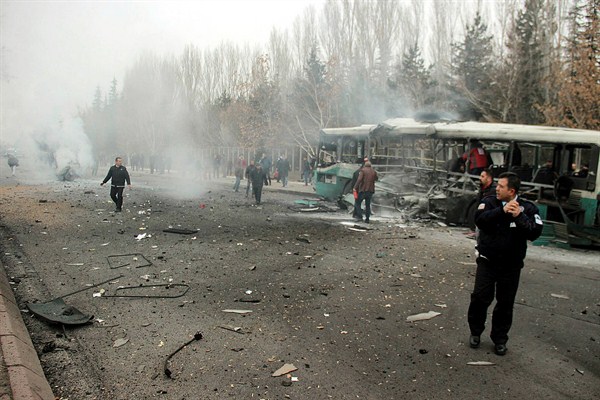Last week, Turkey was hit by yet another terrorist attack, a car bombing that killed 13 soldiers and wounded 55 others in the central Anatolian city of Kayseri. Although quickly overshadowed days later by the assassination in Ankara of Russia’s ambassador to Turkey, the bombing came just a week after a twin suicide bombing killed 44 policemen and wounded another 150 outside the Besiktas football stadium in Istanbul.
While no immediate claim of responsibility has been issued for the Kayseri bombing, solid evidence points to the same perpetrators as the earlier Dec. 10 attack: the Kurdistan Freedom Falcons (TAK), a well-known offshoot of the Kurdistan Workers’ Party (PKK). The quick succession of attacks was a grim reminder that after 20 months of renewed fighting in eastern Turkey between the PKK and the Turkish military, the PKK is far from broken. In fact, it appears that the election of Donald Trump as president of the United States has made a bad situation in Turkey even worse for the PKK and left it with no other option than to step up attacks on the Turkish state.
TAK rose to prominence in 2005 with terrorist attacks on Turkish coastal resorts that were designed to hurt the tourism sector. While some security analysts believe that TAK has split from the PKK, most authorities on the group, such as Vera Eccarius-Kelly, Aliza Marcus or Metin Gurcan, still identify it as loosely affiliated with the PKK. It has been argued that the PKK draws on TAK for attacks on soft targets that would either damage the former’s reputation or exert pressure on the Turkish state during peace negotiations. While it is believed to be financed and logistically supported by the PKK, TAK appears to be independent in selecting targets and timing attacks. The narrative of a PKK-TAK split carries the benefit of plausible deniability of the TAK’s actions for the PKK.

